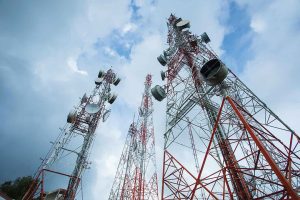THE Philippine Chamber of Commerce and Industry (PCCI) and advocacy coalition Better Internet PH (BIP) said the incoming administration can get the ball rolling on attracting investment by passing internet connectivity legislation within its first half-year in office.
“The Filipino people and the business sector continue to suffer from poor internet service. We urge the new administration to identify as urgent the passage of laws that will expand internet coverage in the rural areas and provide more connectivity choices,” PCCI and BIP said in a statement on Wednesday.
PCCI and BIP backed the passage of an Open Access in Data Transmission Act, a Rural Wired Connectivity Development Act, a Spectrum Management Act, a Better Internet Act, and a Satellite-based Technologies Promotion Act.
President-elect Ferdinand R. Marcos, Jr. is set to assume office on June 30, succeeding President Rodrigo R. Duterte.
According to PCCI and BIP, an Open Access in Data Transmission Act would set a regulatory framework for internet services and proposes a simplified qualification and registration process for internet service providers, encourages infrastructure sharing, and facilitates accelerated internet network rollouts.
A Rural Wired Connectivity Development Act would expand wired internet services in rural areas, mainly by granting incentives to potential operators. A Spectrum Management Act would ensure transparency, equity, and competition in the distribution and management of radio spectrum for wireless services.
A Better Internet Act would direct service providers to maintain a minimum internet connection speed depending on the location and to deliver at least 80% of the advertised download speed, while a Satellite-based Technologies Promotion Act would encourage more private sector investment in satellite internet in geographically isolated and disadvantaged areas.
Citing the Google 2021 Economic Impact Report, the PCCI and BIP said the Philippines can develop a digital economy with an estimated economic value of P5 trillion by 2030. Some 70% can be generated by technology-led business, including e-commerce and mobile applications for the retail industry which can facilitate digital transactions and interactions, cut labor requirements, encourage inventory efficiencies, reduce real estate costs, and offer productivity gains ranging from 6% to 15%.
“We believe that the passage of these bills will help the Philippines take advantage of the digital opportunity that advanced countries have harnessed, and that their citizens are now enjoying. With better internet connectivity, the Philippines will achieve a golden age in the digital era,” they said. — Revin Mikhael D. Ochave
